Graham Reid | | 3 min read
Elmore James: Dust My Broom
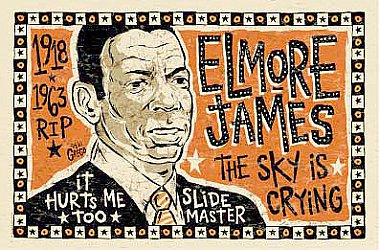
It has been almost half a century since
Elmore James bent over to pull up his socks before going out to play
in an Chicago nightclub . . . and went face down on to the floor with his
third and final heart attack.
Although he was not widely known, the
world lost a good one who left an immense legacy.
James had an agonised vocal style and
brutal slide guitar playing which no doubt owed its relentless,
attacking style to his first instrument, a wire attached to a
broomstick and played with bottle or can.
He has always found favour among
blues-rock musicians from John Mayall (who recorded numerous James
songs in the early Sixties, including James' classic Dust My Broom)
to the Black Crowes, whose debut album, Shake Your Money Maker took
its title from a James song.
Eric Clapton and Stevie Ray Vaughan
have both covered Sky is Crying, Jeremy Spencer of olden days
Fleetwood Mac was a James disciple, and the Allman Brothers used to
do Done Somebody Wrong. They had Sky is Crying played at brother
Duane’s funeral.
Elmore James (born in Mississippi as
Elmore Brooks in 1918, died 1963) has not really had his due from
compilers of his dozen or so years of recordings. That is largely
because he bounced around from small labels until Chicago record shop
owner Bobby Robinson nailed him down in '59 for his final four years.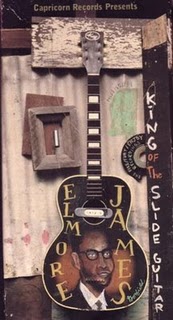
The '93 collection King of the Slide
Guitar -- there would be none so bold as to challenge that title,
surely? -- gathered 50 Robinson-years tracks on to two discs in a box
which included excellent versions of all his best-known songs: Sky is
Crying, Dust My Broom, Done Somebody Wrong, Moneymaker and Standing
at the Crossroads, his version of the Robert Johnson classic on which
he takes composer credits.
Plagiarism is endemic in the blues, but
James always seemed particularly cheeky. Even his classic Dust My
Broom is of questionable authorship (Johnson had I Believe I'll Dust
My Broom and there were other versions even earlier). James also
frequently rewrote himself -- I'm Worried is a minor variant on Broom
for example -- and numerous other James songs are connected at the
hip. His songs work in a few small closed circles.
That’s hardly a big deal because
James -- inducted into the Rock and Roll Hall of Fame in '92 by
Robbie Robertson -- brings anger and often seething rage to his
vocals and scary guitar.
He may have had a tortured spirit
inside, but James was a snappy dresser on stage and enjoyed practical
jokes. The box’s comments by sideman and label head Robinson
unfortunately give only small insights into James the man, but the
music here confirms a comment by Lawrence Hoffman of Living Blues
magazine: “It’s kind of a moot point to review James' music --
it’s like commenting on a primary colour."
His raw elemental sound -- derived from
Johnson and elemental in its aggressiveness -- popularised the rural
Delta blues from which it was drawn, but its very intensity provided
source material for another generation of blues musicians who would
appear around the time of his death, and they were mostly white and
English.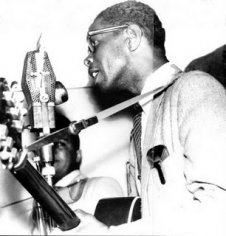
But it wasn't just the blues
aficionados who recognised him: on the Beatles' For You Blue -- a
Harrison composition on which Lennon plays James-style slide guitar
-- Harrison says, "Elmore James' got nothing on this baby".
After the astonishing sales success of
the Johnson box set -- half a million sold and still going -- it
wouldn't be surprising to find King of the Slide Guitar shadowing it.
James deserves, albeit belatedly, that
kind of recognition.
After all, Clapton, the Black Crowes,
Jimi Hendrix (who briefly called himself Jimmy James and recorded
James' Bleeding Heart), Mayall, Roy Buchanan (who wrote Tribute to
Elmore James) and Stevie Ray Vaughan can't all be wrong about this
man whose music, according to Bob Marley biographer, the late Timothy
White, is "fused in a passion fierce enough to strip the paint
off Heaven's gate".
Like this? Then check out the interviews, reviews and overviews at Blues in Elsewhere.

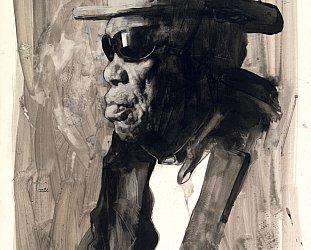

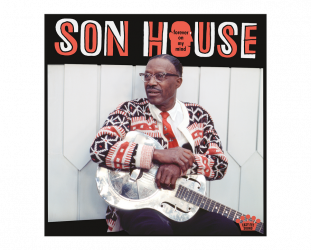

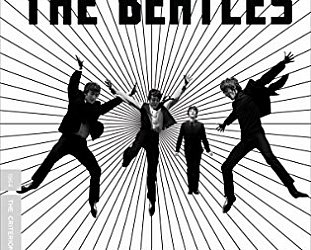

post a comment